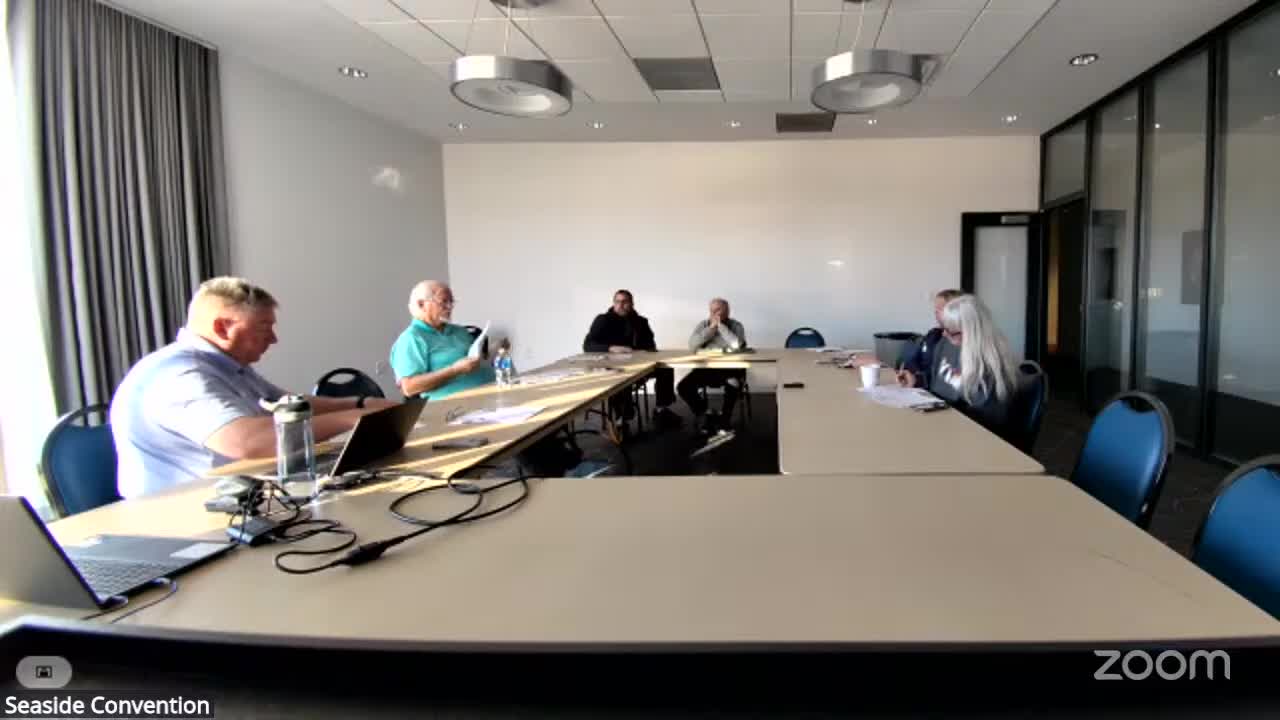Seaside commission reviews draft citywide boards policy, budget pressures and event bookings
Get AI-powered insights, summaries, and transcripts
Subscribe
Summary
Members of the Seaside Convention Center Commission reviewed a draft citywide policy for boards and commissions, discussed membership and quorum rules, and heard operational updates on event bookings and budget pressures including higher electricity and insurance costs.
Members of the Seaside Convention Center Commission met to review a draft citywide policy for boards, commissions and committees and to hear operational updates about the convention center’s bookings and finances.
The commission discussed a proposed unified policy that would set standards for membership, meeting frequency and procedures across city advisory groups, and then craft committee-specific bylaws. Commissioners and staff also reviewed recent event revenue and attendance, the center’s shift to new event-management software, and emerging budget variances in electricity and insurance costs.
The draft policy would standardize eligibility and term limits for commission members, asking that members live, work or own a business in Seaside and proposing term limits of no more than two terms. The draft also clarifies quorum rules: a majority of appointed members must be present for the commission to transact business; if a quorum is not reached within 20 minutes the meeting cannot proceed. Commissioners discussed using Robert’s Rules of Order as a baseline for meeting procedure while ensuring the city’s overriding Oregon statute framework is reflected in the policy. Staff said the draft has been routed to city legal staff (Spencer Kyle) for initial review before being forwarded to the City Council.
Commissioners and staff talked about recruiting and onboarding new members. The group welcomed a recently appointed member, Tristan, and discussed proactive outreach to local business groups and the Seaside Chamber to identify residents and employees who meet the membership criteria. Commissioners requested the commission be able to submit written recommendations with candidate applications sent to council to strengthen appointment decisions.
On operations and finance, staff reported recent large events that boosted attendance compared with the prior year and described an ongoing transition to the TripleSeat event-management platform. Staff said TripleSeat has features that improve invoicing and deposits but has produced some confusion on new-event billing that required staff follow-up with clients.
Staff presented several clarifying finance figures: the convention center’s electricity line was budgeted at $60,000 for the year and about $20,000 had already been spent; insurance costs were reported to be about $17,000 over budget (staff attributed that to a city policy on insurance); two event deposit payments were listed as $30,008.33 and $13,006.66; and one large accounts-receivable item discussed in the meeting was listed in notes at about $243,000 with a partial payment of $1,700 recorded and later corrected after staff contact with the client. Staff said many first-time events are required to prepay in full, which affects the timing of revenue recognition.
Commissioners also discussed marketing and booking strategies. Staff outlined success attracting larger events—one loss-prevention retail conference had about 550 attendees compared with roughly 110 in the same period the prior year—and reported two cheerleading competitions booked for February and December, helping expand youth-event business. Staff said federal funding changes have affected a few potential conferences but the full impact is not yet known. The commission discussed targeted outreach to area meeting planners and cautioned that participation in out-of-area trade shows requires a careful cost-benefit analysis.
No formal motions or votes were recorded in the transcript. Staff and commissioners said they will continue to refine the draft policy and return it to City Council after the legal review. Staff asked members to consider chair and vice-chair self-nominations for the next term and to prepare for a more structured quarterly meeting schedule that focuses on forward-looking topics (budget in March, strategic planning in December) rather than routine reporting.
The meeting closed with procedural reminders about member absences and the commission’s intention to shorten recurring report segments to leave more time for discussion and planning.
